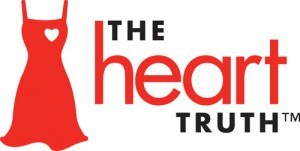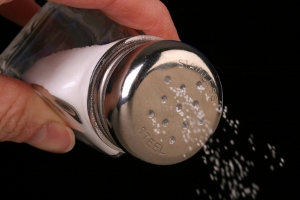Red is a fabulous color. It’s bright, bold, and down-right stunning. It’s also the official color of the Heart Truth campaign, by the National Heart, Lung, and Blood Institute and its partners to raise awareness about women’s risk for heart disease.
The Red Dress is the centerpiece of the campaign and was created as a national symbol in 2002. Its presence is meant to remind women that they need to protect their heart health and inspires them to take action. This Friday, February 3, everyone is encouraged to wear red to raise awareness for women’s heart disease.
 The campaign is specifically targeted toward women ages 40 to 60; however, all women can benefit from the small changes encouraged as part of the campaign. Since heart disease develops gradually, it’s really never too early to start promoting healthy heart initiatives.
The campaign is specifically targeted toward women ages 40 to 60; however, all women can benefit from the small changes encouraged as part of the campaign. Since heart disease develops gradually, it’s really never too early to start promoting healthy heart initiatives.
Some of the major risk factors for developing heart disease are obesity, physical inactivity, high blood pressure, high cholesterol, smoking, a family history of heart disease, diabetes, and being over the age of 55. Although genetics can definitely play a role in susceptibility to these risk factors, changing lifestyle behaviors can also greatly impact an individuals likelihood of developing the condition.
Although eating a well-balanced diet, staying physically active, and keeping weight in check all seem like simple notions that most people know, it’s often hard to put those general principles into practice. This is probably true because it’s difficult to envision these large scale ideas as small individual actions we make on a daily basis. These small behaviors eventually add up and result in preventative steps toward heart disease prevention.
(more…)











